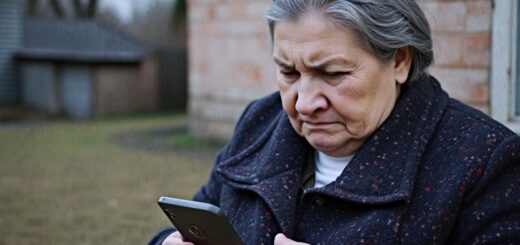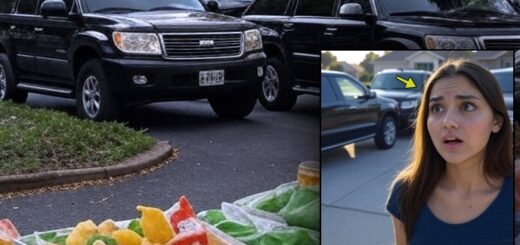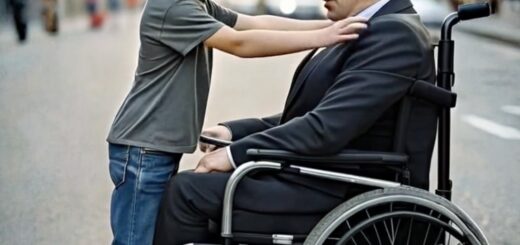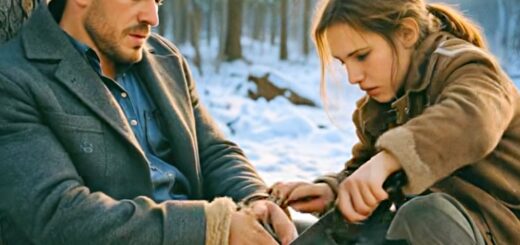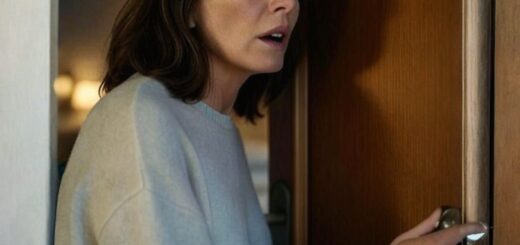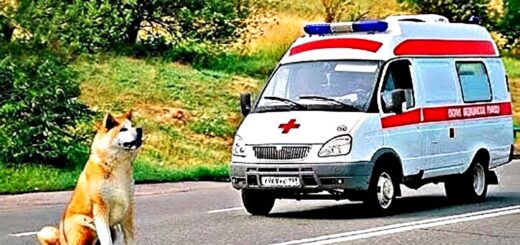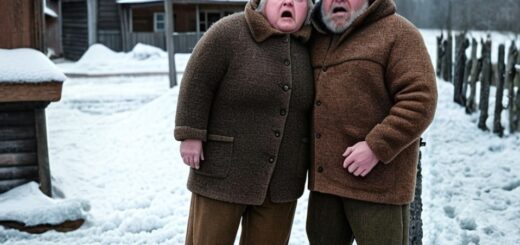“Avoid attending your spouse’s burial. Inspect your sibling’s residence…”…
But kill my old life, my personality, my future. I went to bed with these thoughts. And all night I dreamed of cemetery, empty caskets, and Emily’s laughter over my grave.
In the morning I woke with one thought: I needed to learn more about Andrew. About how he died, what was in his will, who buried him. If Emily killed him, there should be traces.
I dressed in black; needed to maintain the grieving widow image, and drove to the city administration archive. There they kept copies of all wills registered in our city. The girl at the desk expressed condolences and without extra questions gave me Andrew Peter Davis’s file.
I sat at a table in the reading room and opened the folder. The will was drawn up a month before Andrew’s death. Just a month.
He left everything to Emily: house, car, bank deposit, insurance. No one else. Didn’t even mention parents.
But the most interesting was in another document. The executor of the will was one Victor Simon Kramer. Same person who was executor of Paul’s will.
I copied his address and phone. Then asked for Paul’s file. Compared documents.
Handwriting in both wills was the same. Not the deceased’s handwriting, the one who drew them up. Kramer had been a notary for 20 years.
Elderly man with impeccable reputation. But why him specifically for both wills? Our city isn’t big, but there are several notaries. I left the archive and drove to Kramer’s office.
Small building downtown, on the first floor of an old house. Sign at the entrance said appointments by schedule. I scheduled for tomorrow.
Told the secretary I needed to file husband’s inheritance documents. The woman was sympathetic, offered the earliest time. After that, I drove to the cemetery where Andrew was buried.
The grave was in the old part, under a big oak. Simple black granite monument, photo of a young man with kind eyes. I stood at this grave trying to imagine what Emily felt burying him.
Grief? Relief? Or already planning the next step? Nearby, an elderly man was watering flowers on a neighboring grave. I approached him and started a conversation. Introduced myself as Andrew’s distant relative, said I’d come from another city.
The man, named Peter, was local. He’d worked at the cemetery for many years, knew everyone buried here. Remembered Andrew’s funeral.
Peter said it was strange funeral. Few people, everything very quick. Emily cried all the time, but somehow unnaturally.
And mainly, they closed the casket and lowered it so fast many didn’t get to say goodbye. I asked if he remembered who conducted the service. Peter said no priest.
Only funeral home workers and a few family members. Then he said something that made my heart stop. He said after the funeral, he noticed the grave wasn’t sealed.
Usually the priest makes a cross with a shovel at the grave corners and says words that the casket is sealed until resurrection day. But then it wasn’t done. Peter thought it was because no priest.
But later learned even funeral home workers should have done it. And they didn’t. I thanked him and went to the cemetery administration.
Small building at the entrance where burial records are kept. The woman at the desk checked the logs. Confirmed Andrew Davis’s grave wasn’t officially sealed.
In the sealing column was a note «Postponed for technical reasons.» I asked what that meant. The woman shrugged.
Said sometimes problems with documents or the casket itself. Then sealing is postponed until resolved. But two years passed, and the grave still not sealed.
I left the administration with shaking hands. Unsealed grave meant the casket could be opened without breaking official seals. Access to the body possible.
And what if there’s no body there at all? I sat in the car and tried to calm down. Needed to think logically. If Emily killed Andrew, why leave an unsealed grave? It attracts attention.
Or conversely, she knew no one would check. That in a small city such things go unnoticed. I drove home but on the way stopped at a grocery store.
Needed to buy something for dinner, maintain normal life appearance. In the store, neighbor Anna stopped me. Elderly woman who knew all neighborhood news before they happened.
Anna expressed condolences and started saying how everyone mourned Paul. Then lowering her voice, added that people said strange things about Emily. I asked what exactly.
Anna looked around and leaned closer. She said Emily was too lucky with men. First husband died, left her everything.
Now brother-in-law died. Left money too. People starting to notice a pattern.
Anna added she’d seen Emily at the bank yesterday. She didn’t look like someone grieving. Rather like someone handling financial matters.
I thanked her for the info and quickly finished shopping. Meaning rumors were starting to spread. People noticing oddities in Emily’s behavior.
At home, I sat at the computer and started searching how to get exhumation permission. Turned out it’s a complex process requiring strong grounds and many documents. Need to file a petition in court, attach evidence of necessity, get relatives’ consent.
Process could take months. But I had grounds. Suspicion of unnatural death, unsealed grave, strange document coincidences.
I printed petition samples and started filling them. Wrote carefully, not mentioning Paul and his fake death. Only facts about Andrew and suspicion his death unnatural.
In the morning, I drove to a lawyer. Found an attorney specializing in inheritance cases. Young woman with serious face and attentive eyes.
I told her my suspicions. Not the whole truth, only what concerned Andrew. Said I was a distant relative, worried about circumstances of his death.
The attorney listened carefully and said the case was complicated. Exhumation is extreme measure. Courts reluctant to approve.
Need very strong evidence. She suggested first gather more info. Talk to the doctor who issued the death certificate.
Find witnesses who saw Andrew in his last days. I agreed and paid for the consultation. The attorney gave me her card and said she was ready to help if I found enough evidence.
After meeting the attorney, I drove to notary Kramer. His office furnished with old furniture. Walls hung with diplomas and photos with important people.
Kramer was a man about sixty, with gray hair and tired eyes. He expressed condolences for Paul’s death and asked how he could help. I said I wanted to clarify some will details.
Kramer took out the file and started explaining formalities. Spoke calmly, professionally, but I noticed he was nervous. When I asked about will execution, he became more tense.
Said everything would be done according to law, no need to worry. Then I casually mentioned Andrew Davis. Said I’d heard Kramer handled his will too.
Asked if there were similar issues there. Kramer paled. Said he didn’t remember such a client.
That he had many cases, couldn’t recall all. But I saw he lied. His hands shook flipping papers.
I thanked him and left. Now I was sure Kramer knew more than he said. Possibly he was part of the scheme.
In the evening, Emily called. Her voice agitated, almost hysterical. She said people were spreading rumors about her.
That someone said nasty things about her late husband. Emily asked if I’d heard anything. If I knew who might spread these rumors.
I said I hadn’t heard anything. That people always gossip, especially after funerals. That no need to pay attention.
But Emily didn’t calm down. Said it was unfair. That she’d lost two dearest people, and now accused of something horrible.
After the talk, I understood Emily knew she was being watched. That people starting to ask questions. And it scared her.
The next day, I drove to Andrew’s parents. They lived in an old neighborhood, small house with garden. Elderly couple who never recovered from losing their son.
Andrew’s mother, Valerie, met me with distrust. But when I said I wanted the truth about her son’s death, she invited me in. We sat in the kitchen, and Valerie started telling.
She said she’d always suspected something happened to Andrew. He was healthy, young, never complained about heart. But in the last weeks before death, he changed.
Became nervous, irritable. Said he had problems with Emily. That she demanded money, threatened divorce.
Valerie said she’d tried to talk to her son. But he brushed it off. Said he’d handle it.
Then she told about the day of death. Emily called in the morning, said she’d found Andrew dead in bed. That she’d called ambulance, but too late.
But when Valerie arrived, the body was already taken. Emily said doctors insisted on quick removal because of heat. Valerie wanted to see her son, but Emily convinced her it would be too hard.
That better remember him alive. Funeral was closed casket. Emily said it was better for everyone.
Valerie cried telling all this. Said she’d always felt something wrong. But didn’t know what to do.
I asked if they’d questioned doctors about cause of death. Valerie said they tried, but the doctor who issued the certificate said everything clear. Heart failure, it happens.
Andrew’s father, Ivan, sat silently. But when I was leaving, he walked me to the gate and quietly said he suspected Emily too. He said he’d seen how she behaved after son’s death.
Recovered too fast, too actively handled inheritance. Not like a wife who lost a husband. Ivan added if I found a way to learn the truth, they’d support.
That they were ready to consent to exhumation if it helped. I thanked them and left. Now I had parents’ consent.
Important part for filing petition in court. At home, I continued filling exhumation documents. Described all suspicious circumstances, unsealed grave, Emily’s strange behavior, parents’ doubts.
But when I went to court to file the petition, a surprise awaited. The clerk said couldn’t accept documents. Needed additional expert conclusion on exhumation necessity.
I asked where to get such conclusion. The clerk gave me address of medical expert who worked with court. I drove to the expert.
Middle-aged man with indifferent face. He listened to my arguments and said evidence insufficient. That suspicions not grounds for exhumation.
Expert added death certificate issued correctly, doctor has good reputation. No medical grounds to doubt diagnosis. I tried to convince him, told about unsealed grave, strange coincidence.
But he was adamant. When I left his office, I noticed a photo on the desk. Expert photographed at some event.
Next to him stood several people, among whom I recognized the doctor who issued death certificates for both Andrew and Paul. They knew each other. Worked together.
I understood the system worked against me. All these people connected. Doctor, expert, notary, they covered each other.
In the evening, I sat home thinking what to do next. Official paths blocked. But the fact of blocking confirmed there was something to hide.
If Andrew really died naturally, no one would hinder exhumation. Conversely, they’d be interested in dispelling suspicions. So a whole group of people worked to keep the truth hidden.
The phone rang. Unknown number. Voice male, hoarse, as if the person had a cold or deliberately changed timbre.
He said he knew. That I was trying to get exhumation. That it was dangerous for my health.
The man added some things better left alone. That I had other problems to think about. Then he hung up.
I sat with phone in hands and understood I was being warned. Someone knew my actions and tried to stop me. But this only confirmed my suspicions.
If nothing to hide, why threaten? I stood and went to the window. Outside ordinary evening life, people coming from work, kids playing in yard, dogs running between trees. No one knew in this quiet city such things happened.
That people killed and faked deaths, that whole groups of officials covered crimes. But I knew. And I wasn’t going to stop.
The morning after the threatening call, I woke feeling watched. Every sound in the house seemed suspicious. Creak of floorboards, water noise in pipes, even clock ticking – all signals of danger.
I got up and went to the window. Outside ordinary life, but now every passerby could be watching me. Every car the one from which surveillance conducted.
The phone rang, and I jumped. Unknown number on screen. I stared at the screen long, undecided to answer.
But curiosity beat fear. Voice female, young, agitated. Woman introduced herself as Sarah and said she knew about my problems with Paul.
That she had a similar story. I asked how she knew my number. Sarah said she found it through mutual acquaintances.
That she’d searched long for a way to contact me. She suggested meeting. Said she had info that would interest me.
That Paul deceived not only me. We agreed to meet in a cafe on the other end of town. Place where no one knew us.
I arrived early and sat at a corner table from where the whole room was visible. Sarah appeared right on time. Girl about 25, blonde with short haircut, dressed simply but tastefully.
She sat opposite and got right to business. Told she’d dated Paul a year and a half ago. That he introduced himself as divorced businessman looking for serious relationship.
Sarah said Paul was very convincing. Gave gifts, took to expensive restaurants, talked about joint future. She fell in love and believed every word.
But after three months, Paul started behaving strangely. Called less, canceled meetings, cited urgent matters. Then just disappeared.
Sarah tried to find him. Called, texted, came to his work. But there said no such employee.
Never was. She understood Paul deceived her from the start. That all his stories about work, divorce, future plans were lies.
But the worst Sarah learned later. She hired a private detective who found out Paul was married. That he had a wife who knew nothing about his affairs.
That wife was me. Sarah apologized. Said she didn’t know about my existence. That if she’d known, she’d never date a married man.
I listened to her story and felt not anger, but strange relief. Meaning I wasn’t alone.
Meaning there were others Paul deceived. Sarah took out a folder with documents. Said she’d collected evidence of deception.
Photos, correspondence, restaurant receipts. Everything that could be useful in court. She showed me photos of Paul from different meetings.
In some, he looked completely different: different hairstyle, clothes, even posture different. Sarah explained Paul used different images for different women. For her, successful businessman…






